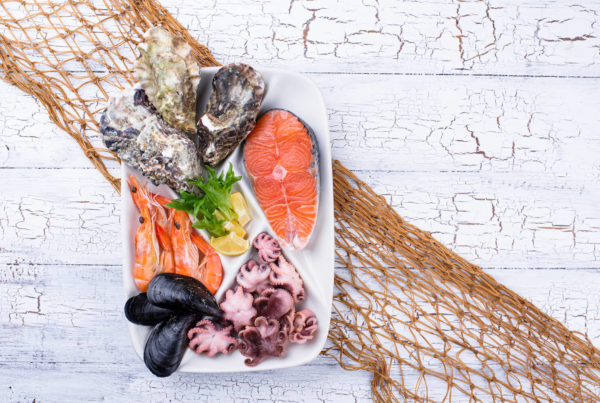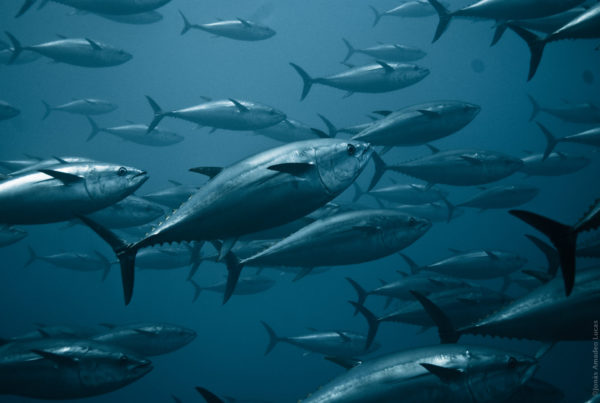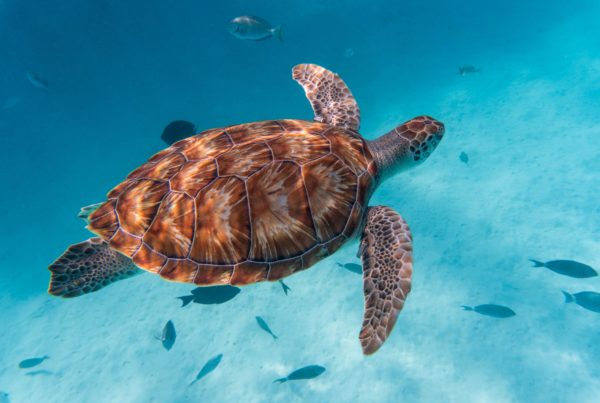IPNLF Introduces Sourcing Transparency Platform for Tuna Supply Chains
The International Pole and Line Foundation (IPNLF) has launched its Sourcing Transparency Platform (STP), an online portal designed to increase transparency in the tuna supply chain.
The STP is exclusive to IPNLF member-companies and aims to improve transparency of pole-and-line, handline, and troll (collectively known as one-by-one) tuna supply chains through public disclosure. Current tools that promote these small-scale tuna fisheries are often too expensive, according to IPNLF. The organization’s aim is to promote these fisheries at no cost to help increase their market access, and to promote responsible business practices of companies and educate consumers on responsible, ethical tuna products. Continue reading here (Source: SeafoodSource).
China’s Expanding Influence in the Pacific
While China’s growing presence in the developing world has stoked fears in Western media, coverage of the country’s quiet but rapid insertion into the affairs of the Pacific Island nations has been scarce. Why is an economic heavyweight like China interested in cultivating ties with the remote and thinly populated island nations of the Pacific Ocean?
The answer is that Beijing views the region as rife with commercial, diplomatic, and geo-strategic opportunities.
One such opportunity is found off the coasts of the islands. The nations of this region possess exclusive economic zones (EEZs) that encompass a combined 19 9 million square kilometers of ocean water. This matters because China’s own fishing areas have been severely depleted from years overfishing and other unsustainable practices. Continue reading here(Source: Asia Times).
80 Percent of Tonga Population Impacted By Eruption and Tsunami
Some 12,000 households have been affected by the volcanic eruption and tsunami that hit the islands of Tonga over the weekend, according to estimates by the UN Office for the Coordination of Humanitarian Affairs (OCHA).
In total, about 84,000 people, more than 80 per cent of the population of the South Pacific Kingdom, have been affected by the disaster.
Besides the three fatalities reported earlier in the week, no further deaths have been confirmed. Continue reading here (Source: UN News).
Kiribati and Samoa Implement Rare Lockdowns After Travelers Test Positive
Kiribati and Samoa both implemented COVID-19 lockdowns on Saturday after international arrivals brought the virus with them, a rarity for the remote Pacific island nations.
This is the first pandemic lockdown in Kiribati, which had previously reported only two COVID-19 cases — both were people on a fishing ship in May 2021 who isolated on board. The country reopened its borders to international travel earlier this month for the first time in nearly two years.
Its government announced on Tuesday that 36 out of 54 passengers on a flight from Fiji had tested positive for COVID-19 upon arrival, despite being vaccinated and testing negative three times during the pre-departure quarantine period. They were escorted to a quarantine center for further monitoring and testing. One of the frontline workers stationed outside the quarantine center also tested positive. Continue reading here(Source: NPR).
Southeast Asia Attracting Seafood Processing Away From China
As China’s economy continues to evolve and its trade relationship with the U.S. remains strained, it is likely other countries in Southeast Asia will take a larger role in processing seafood, according to a panel of experts at the National Fisheries Institute’s Global Seafood Market Conference.
Trade relations between the U.S. and China became suddenly more volatile when the administration of U.S. President Donald Trump implemented tariffs on Chinese goods. Trump’s stated goal was to put an end to the significant trade imbalance between the two countries – an imbalance that U.S.-China Business Council President Craig Allen said was nothing new. Continue reading here (Source: SeafoodSource).
Trade-Offs Between Bycatch and Target Catches in Static Versus Dynamic Fishery Closures
The incidental catch of threatened species is still one of the main barriers to fisheries sustainability. What would happen if we closed 30% of the ocean to fishing with the goal of reducing bycatch? Analyzing 15 different fisheries around the globe, we found that under static area management, such as classic no-take marine area closures, observed bycatch could be reduced by 16%. However, under dynamic ocean management based on observed bycatch and closing the same total area but fragmented in smaller areas that can move year to year, that reduction can increase up to 57% at minimal or no loss of target catch. Continue reading here (Source: Proceedings of the National Academy of Sciences of the United States of America).
Thai Union Donates Almost 4-Million Servings of Human and Pet Food Globally Over Two Years as COVID-19 Support
Thai Union Group PCL has donated almost four million serving of human and pet food around the world, along with COVID-19 supplies and other financial support, in the two years since the COVID-19 pandemic began in 2020.
In 2021 alone, Thai Union donated nearly one million servings of food, and many other COVID-19 supplies globally, as part of its Thai Union Cares program – a key component of the Company’s commitment to Healthy Living and taking care of the human and animal communities where it operates.
The 2021 donations included more than 500,000 servings of protein rich seafood from Chicken of the Sea to U.S. college campuses to support students struggling to afford food because of financial difficulties. Continue reading here (Source: MarketScreener).



